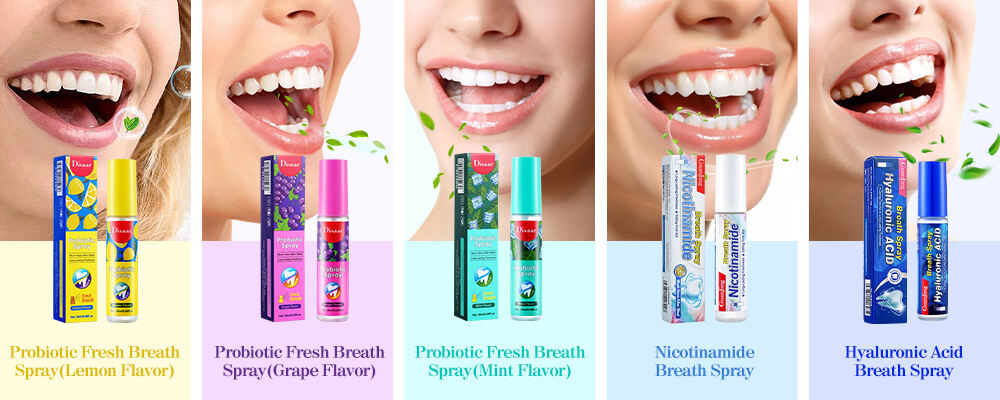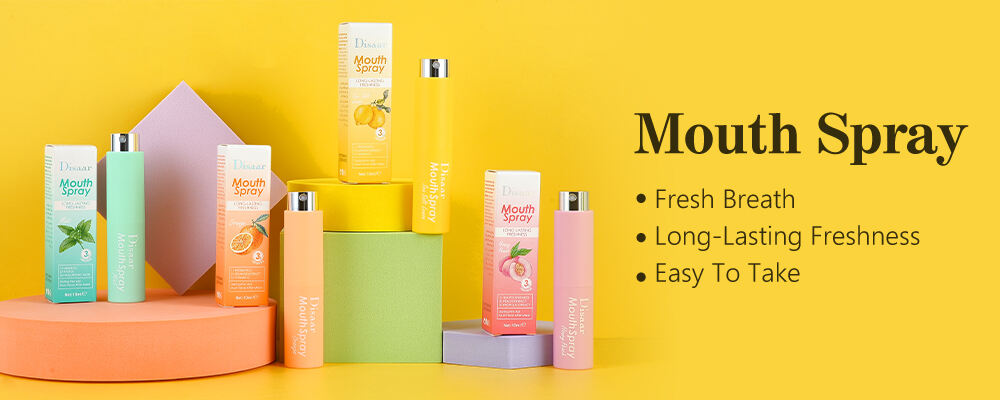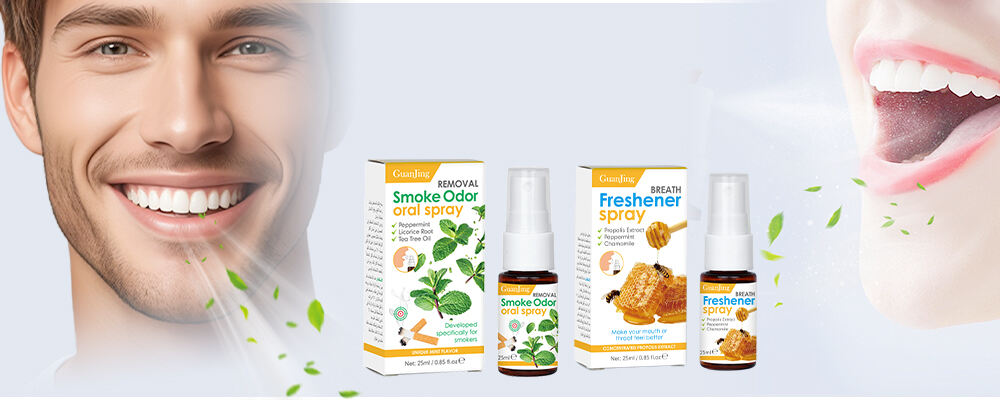Oral hygiene routines are becoming more diverse, modernized, and adaptable to lifestyle demands. Consumers are seeking products that not only promote oral health but also match the pace of their daily activities. While toothpaste and tooth powder remain standard components of oral care, a growing number of people are turning to an innovative alternative: mouth spray. Compact, effective, and refreshingly simple, mouth spray is redefining what it means to maintain fresh breath and oral cleanliness on the go.

Mouth spray is a liquid oral hygiene product dispensed in a fine mist from a small spray bottle. Designed to freshen breath instantly, mouth spray often contains antibacterial agents, essential oils, herbal extracts, and sweeteners like xylitol to support both freshness and hygiene. It is typically alcohol-free, making it suitable for those with sensitive mouths or dry mouth issues.
Unlike toothpaste and tooth powder, mouth spray does not require a brush, water, or a sink. This makes it highly suitable for travel, office use, public settings, and spontaneous refreshment.
Mouth spray serves as a bridge between brushing sessions, especially when traditional oral care isn't possible. Whether you're heading into a meeting, on a long flight, or at a social gathering, mouth spray allows you to freshen your breath discreetly and instantly.
While toothpaste and tooth powder offer deep cleaning and long-term plaque control, mouth spray enhances immediate breath quality and contributes to oral hygiene throughout the day.
Toothpaste is designed for use with a toothbrush, working with mechanical action to remove plaque and polish teeth. Tooth powder functions similarly but comes in powdered form, often using ingredients like baking soda, charcoal, or clay for abrasion and detoxification. In contrast, mouth spray does not rely on physical scrubbing or contact but instead uses a liquid mist to deliver freshness and mild antibacterial benefits.
The simplicity of mouth spray is what sets it apart. It takes seconds to use and does not disrupt one’s schedule, making it ideal for in-between moments and emergencies. This efficiency is especially valuable for individuals who are constantly on the move.

Many mouth spray formulas use natural components like peppermint, eucalyptus, clove oil, and herbal infusions that offer both aromatic and antibacterial properties. These ingredients are chosen not only for their taste but also for their role in fighting odor-causing bacteria.
Toothpaste and tooth powder, by comparison, tend to focus more on fluoride, abrasives, and remineralizing agents. While they are effective at cavity prevention and plaque control, they may not provide the instant freshness that mouth spray delivers.
Mouth spray plays a crucial role in social etiquette and personal confidence. Whether attending meetings, networking events, or dates, a quick spray can help ensure your breath is pleasant and clean-smelling. This added layer of preparedness can significantly boost self-assurance.
In high-pressure or face-to-face situations, first impressions matter. Mouth spray offers a discreet and fast way to improve your breath and make interactions more comfortable and positive.
One of the greatest benefits of mouth spray is its ability to refresh breath multiple times a day without brushing. This makes it particularly effective after meals, coffee, or smoking. Instead of relying on gum or mints that may temporarily mask odor, mouth spray actively combats bacteria contributing to bad breath.
Some users find mouth spray especially helpful for combating dry mouth or morning breath, providing a gentle but effective burst of hydration and freshness.
Mouth spray is an ideal companion for travelers, commuters, and outdoor enthusiasts. Unlike toothpaste and tooth powder, which require brushing tools and water, mouth spray can be used literally anywhere. Its compact size meets travel restrictions and fits easily into a pocket, bag, or car compartment.
Whether hiking, flying, camping, or attending all-day conferences, users can rely on mouth spray for on-demand oral freshness.
Busy routines don’t always allow time for a traditional oral care session. Mouth spray enables individuals to maintain oral hygiene without needing a bathroom or extra equipment. This adaptability makes it especially beneficial for shift workers, students, and professionals.
Integrating mouth spray into your day takes little effort and offers significant advantages for comfort, cleanliness, and peace of mind.
Many mouth spray products are formulated with herbal and plant-based ingredients, supporting a holistic approach to oral health. Consumers looking to reduce synthetic additives in their routines may find mouth spray an appealing choice. Ingredients like neem, tea tree oil, basil, and licorice are commonly found in herbal-based sprays.
This natural formulation not only supports freshness but also complements broader wellness practices. Those who prioritize clean beauty, eco-friendly choices, or Ayurvedic routines often find mouth spray fits seamlessly into their lifestyle.

Mouth spray often uses minimal packaging and can reduce the frequency of toothpaste tubes and other plastic containers. In some cases, reusable or refillable containers are available, supporting a more sustainable approach to oral care.
For environmentally conscious consumers, mouth spray represents a practical step toward reducing waste while maintaining oral hygiene.
Using mouth spray in conjunction with herbal toothpaste allows users to enjoy both long-term and short-term oral benefits. While herbal toothpaste supports daily cleaning and gum health, mouth spray extends freshness throughout the day, especially between meals or meetings.
This pairing offers a natural and well-rounded oral care routine that does not rely on harsh chemicals or artificial additives.
Mouth spray does not replace the need for brushing, flossing, or rinsing, but it does contribute to a more consistent hygiene routine. For individuals struggling with dry mouth, gum irritation, or frequent social interaction, it offers tangible support for comfort and health.
Integrating mouth spray into your routine makes oral care more accessible, adaptable, and responsive to real-life needs.
Mouth spray can be used multiple times per day as needed, especially after meals or before social interactions. Most formulas are gentle enough for frequent use.
No, mouth spray should not replace brushing. It is intended as a supplemental product to support freshness and minor antibacterial care between brushing sessions.
Some mouth sprays are formulated specifically for children with milder ingredients. Always check the label and consult with a dentist before use for younger users.
Yes, many mouth sprays are designed to combat dry mouth symptoms by providing hydration and stimulating saliva production, especially those that are alcohol-free.